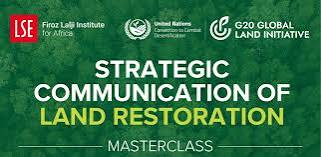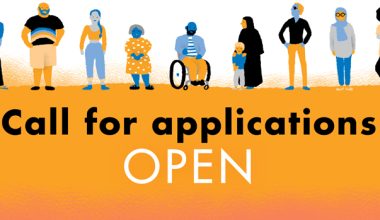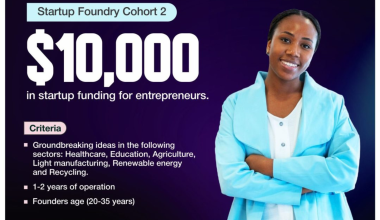Schlumberger Foundation Future Fellowship
Good news! Schlumberger Foundation Future fellowship is currently open. In this article we will explain in detail about this fellowship, its benefits and step by step application process.
Schlumberger Foundation Future Fellowship 2023-2024 is a funded scholarship for international students. This scholarship is valued at maximum of USD 50,000 per year for a PhD and maximum of USD 40,000 per year for a Post-doc and may be renewed through to completion of studies.
The Faculty for the Future program, launched in 2004, awards fellowships to women from developing and emerging economies to pursue PhD or Post-doctoral research in science, technology, engineering and mathematics (STEM) at leading universities worldwide.
The program’s long-term goal is to generate conditions that result in more women pursuing scientific careers by lowering the barriers women face when entering STEM disciplines, thus reducing the gender gap.
Scholarship Summary
- Level of Study: PhD (Doctoral) / Postdoctoral
- Institution(s): Leading universities worldwide
- Study in: Any Country
- Opportunity Focus Areas: Science, Technology, Engineering, Mathematics, Physics and Biology
- Deadline: November 11, 2022
Scholarship Coverage for the Schlumberger Foundation Future Fellowship
Schlumberger Foundation Faculty for the Future Fellowships will provide the recipient with the following benefits:
- Firstly, the actual costs for eligible expenses up to a maximum of USD 50,000 per year for a PhD and maximum of USD 40,000 per year for a Post-doc and may be renewed through to completion of studies.
- Also, Renewal grants are subject to performance, self-evaluation, recommendations from supervisors and strong evidence of re-integration plans in the home country.
Eligibility Criteria for Schlumberger Foundation Future Fellowship
To qualify for Schlumberger Foundation Future Fellowship, candidate must fulfill all of the following requirements below if you:
- Required Language: English.
- Eligible Countries: All world countries.
- Are a female and are a citizen of a developing country or emerging economy*. You are not eligible to apply if you hold dual citizenship of which one is citizenship of a developed country. (N.B. If you have been awarded a Faculty for the Future grant and after the award you obtain citizenship of a developed country, the grant will be discontinued as of the date of such additional citizenship);
- Are preparing for a PhD degree or post-doctoral research in the science, technology, engineering and mathematics (STEM) disciplines. Awards in biological sciences are limited to interdisciplinary research between physical and biological sciences. The Faculty for the Future program does not fund Master level studies;
- Are enrolled, admitted or have applied to a host university/research institute abroad (applications are no longer accepted where a candidate has not yet applied to a university).
- If you are applying for a sandwich course the final degree must be awarded by the Host University abroad (i.e., not from the home country university);
- Hold an excellent academic record;
- Have a proven track record of teaching experience or can demonstrate commitment to teaching;
- Can demonstrate active PARTICIPATION in faculty life and outreach programs to encourage young women into the sciences;
- Finally, if you are willing to contribute to the socio-economic development of your home country and region by strengthening the faculties in your home university, pursuing relevant research, or using your specific expertise to address public policy matters.
How to Apply for Schlumberger Foundation Future Fellowship
Please follow the following application instructions to Schlumberger Foundation Future Fellowship:
- Create your own account.
- Validate your account from a verification message sent to your e-mail, check your e-mail.
- Login to your account.
- Press ”Your Application” for 2023.
- Complete your online application form and attach the required documents, then Submit.
Website
To know more about Schlumberger Foundation Future Fellowship, please visit their Official Website
Frequently Asked Questions for Schlumberger Foundation Future Fellowship
What is the initial duration of the grant ?
The initial duration of the grant is for one academic year. The renewal of the grant is not automatic, but is subject to academic progress, quality of references (a reference from host university supervisor is mandatory) and the discretion of the Schlumberger Foundation Faculty for the Future program renewal process.
Is it mandatory to pursue an academic career?
The Schlumberger Foundation does not require any document certifying that you will have a faculty position when you return to your home country upon completion of your studies.
However, during the selection process (for both new and renewals), the reviewing committee closely examines evidence of the commitment to return home and the level of relationship with home country university[ies], research or other institutions in the relevant discipline.
The quality of this evidence, and in the case of renewals in later years of the program of study, the actual effort, as evidenced by applicants’ initiative to find research, faculty or other positions, or to engage in various collaborative or significant outreach projects with home country institutions, has a significant impact on the likelihood of receiving and renewing an award.
May I change my research project or host University if I receive an award?
Applicants may not change their research project or choice of Host University once they have submitted their application. If you are selected for an award, it is on the basis of your application form and you may not subsequently modify your research project and/or Host University without the prior approval of the Schlumberger Foundation.
You are therefore advised to carefully select your choice of Host University and your research project at the time of applying as there is no guarantee that subsequent changes will be accepted.
If I need to interrupt my study for more than 4 weeks due to personal circumstances (e.g. health, family). What shall I do?
You must inform the Foundation staff of this interruption and the reasons for it. When doing so, please explain how this affects your studies / research project, your plans to deal with this interruption as well as your host institution position on such interruption.
Which application form should I use if I applied in the past?
You should use the NEW application grant form (and not the Renewal grant form).
Do I have to find a Host University myself ?
Yes, all applicants are responsible for finding a host university and a Host University Supervisor themselves.
Is there an accredited list of host universities?
No. However, you are encouraged to apply to the best universities abroad in your discipline. The Host University that you are currently enrolled in/or have applied to, will be taken into account in the decision process.
Why is a candidate not selected?
The competition is very intense for a limited number of awards. No individual correspondence will be engaged in to provide reasons to unsuccessful applicants for not receiving a grant; In addition to tough competition, applications are typically unsuccessful due to the following reasons:
- Poor quality and/or incomplete application (especially in the Personal Essay and Research Proposal Statement)
- Failure to meet eligibility criteria
- Insufficient evidence of commitment to home country return; to teaching
- Level of qualification (the Schlumberger Foundation only funds PhD and post-doctorate programs).
More so, the Faculty for the Future grant program seeks to have an impact on gender balance in science disciplines by reinforcing the presence and qualifications of women university teachers in developing and emerging economies.
Further more, we firmly believe that better gender balance at faculty level will encourage more women to study the sciences and engineering disciplines.
When will I be informed of the selection results?
You should wait for results to be delivered. The results are usually available on the application web site by the end of March every year. Applicants who are awarded a grant will then receive a personal email. The other applicants will receive a formal letter.
Will the grant support my family too?
Faculty for the Future grants are based on actual expenses to be incurred by the student only. This typically includes university tuition and bench fees, accommodation costs and a living allowance (e.g., food, a small allowance for books and supplies, medical insurance, child care, transport costs) in addition to a budget for initial travel to the host country, visa charges as well as conference expenses.
Grants can be up to USD 50,000 per year for PhD courses and a maximum of USD 40,000 for post-doc research programs.
Can the grant be renewed and for how many years?
The renewal of the grant is not automatic, but is subject to academic progress, quality of references (a reference from host university supervisor is mandatory) and the discretion of the Schlumberger Foundation Faculty for the Future program renewal process.
Am I eligible without holding a faculty position yet?
We do not require any document certifying that you will have a faculty position when you return to your home country on completion of your studies. However, during the application selection process (for both new and renewals) – the Reviewing Committee closely examines the evidence of commitment to return home and the level of relationship with home country university[ies]. The quality of this evidence has a significant impact on the likelihood of winning and renewing an award.
When should I apply for a Faculty for the Future grant?
You are eligible to apply for a grant when the application session opens in September 2022. For example, if you apply to a host university during 2022-2023 and receive a grant from the Schlumberger Foundation (results of which will be announced at the end of March 2023), this grant is valid until Spring 2024, by which time you must have begun your studies in one of the Host Universities stated in your Application Form.
Registration
Creating a new account
Please go to this page.
Recovering your password
To reset your password please go to the “Forgot Password” link on the home page.
N.B. “Your full name” refers to the name you used to create your initial account, i.e. your Username.
How many grants were awarded for the 2022-2023 academic year?
A total of 138 applications were submitted for the 2022-2023 academic year. Out of this, a total of 37 new grants were awarded.
Does the grant cover school tuition fees for children?
The Faculty for the Future grant does not cover school tuition fees for children. However, it covers a contribution towards pre-school day care costs and after school care costs.
Is there financial support for grantees’ children?
Child care grant: At the discretion of the Schlumberger Foundation, an exceptional child care grant may be awarded (per eligible child) to a grantee where the following conditions are met:
- The child/children is not older than 15 years of age (proof of age may be required);Tthe child/children permanently reside in the same household as the grantee in the host country; and the grantee provides proof of reasonable and documented child-care costs. (All day-care expenses must be supported by a formal letter from the day-care center, including the name of the child and an estimate of monthly charges).
- The Foundation may award up to a maximum of 3,000 USD per annum/per child under 6 years of age, and up to a maximum of 1,500 USD per annum/per child from 6 years of age to 15 years of age.
In addition, a grantee will not be entitled to receive an exceptional child credit for any child who has reached 16 years of age. The total child care grant shall not exceed 10,000 USD per grantee in any grant year.
May I change my research project or host university if I receive an award?
Applicants may not change their research project or choice of host university once they have submitted their application.
If you are selected for an award, it is on the basis of your application form and you may not subsequently modify your research project and/or host university without the prior approval of the Schlumberger Foundation.
Therefore, you are advised to carefully select your choice of host university and your research project at the time of applying as there is no guarantee that subsequent changes will be accepted and approved.
Can my spouse and family come with me if I get an award ? What about visas ? What about financial support for family?
Your spouse and children may, of course, accompany you to your Host Country. However, the Schlumberger Foundation does not handle, or assume responsibility for the visa process. It should be noted that the Faculty for the Future grant is intended to cover the tuition fees and living expenses of the grant recipient only and does not cover the financial costs of an entire family. An additional child care grant is available under certain conditions.
Application eligibility criteria
Am I eligible to apply?
You are eligible if yo are:
- A female and are a citizen of a developing country or emerging economy where women are underrepresented in Science, Technology, Engineering and Mathematics (STEM) disciplines. You are not eligible to apply if you hold secondary citizenship from a developed country. (N.B. If you have been awarded a Faculty for the Future grant and after the award you obtain citizenship of a developed country, the grant will be discontinued as of the date of such additional citizenship);
- Preparing for PhD or postdoctoral studies in STEM. The Faculty for the Future program does not fund Master level studies;
- Currently enrolled, have been admitted to or have applied to a host university/research institute abroad (applications are no longer accepted where a candidate has not yet applied to a university).
- Applying for a sandwich PhD the final degree must be awarded by the Host University abroad (i.e., but not solely from the home country university);
- hold an excellent academic record;
- Committed to going back home to:
- an academic or research position in a STEM faculty;
- using your knowledge to become a STEM entrepreneur to help resolve regional challenges in your local community/region;
- demonstrating leadership by contributing to the public sector using your scientific skills to help provide evidence-based support for STEM policy making, including topics of gender representation;
- Schlumberger employees are not eligible to apply for Faculty for the Future grants.
IF YOU DO NOT MEET THE ABOVE CRITERIA, PLEASE DO NOT APPLY FOR A GRANT, AS YOUR APPLICATION WILL NOT BE RETAINED IN THE SELECTION PROCESS.
Is it a woman only program?
Yes, as described in our manifesto, the program’s long-term goal is to accelerate gender equality in STEM by generating conditions that result in more women pursuing scientific careers through alleviating some of the barriers they encounter when enrolling in STEM disciplines.
I’m already enrolled in a University can I still apply?
You can apply as we accept applications from people who are already pursuing their PhD or post-doc abroad but are in need of financial assistance to continue.
Are Master degrees covered?
Students pursuing Master Degrees are not eligible to apply for a grant. Faculty for the Future fellowships apply to PhD and Post-doc applicants only in a science, technology, engineering or mathematics (STEM) discipline.
Am I eligible to apply if I have already started PhD or post-doc?
Yes, you can apply even if you have already commenced your PhD studies or post-doc research.
Am I eligible to apply if I plan to pursue my PhD or Post-Doc in a university of another developing or emerging country?
The Faculty for the Future program aims to give the opportunity to scientific women from developing and emerging countries to pursue a PhD or a post-doc in the best universities abroad. If you’ve been accepted in a university of excellence you are eligible to apply, even if the university is not in a developed country. However, the host university or research institute that you choose for your studies must not be in your home country (unless it is a sandwich program and in this case the final degree must be issued by the foreign host university).
Am I eligible to apply if I am preparing for a Master’s degree?
Applicants pursuing a degree at Master’s level are not eligible to apply for a grant. Only students who have applied to, have been admitted to, or are currently enrolled in a university abroad to pursue a PhD or a Post-doctoral degree can apply for a Faculty for the Future grant.
Am I eligible to apply if I hold secondary citizenship from a developed country?
No. You are not eligible to apply if you hold secondary citizenship from a developed country .
Note: If you have been awarded a Faculty for the Future grant and after the award you obtain citizenship of a developed country, the grant will be discontinued as of the date of such additional citizenship.
Am I eligible to apply if I study in my home country?
The Faculty for the Future program aims to provide the opportunity to scientific women from developing and emerging countries to pursue a PhD or a Post-Doc in the best universities abroad.
Applicants need to have an excellent knowledge of the language required to pursue their studies at top universities.
Can I apply for a Post-Doc grant if the Host University is the same as the one where I got my PhD Degree?
Question: I am from a developing nation and am currently pursuing my PhD, aiming to graduate in approximately one year from now. Can I apply for the Faculty for the Future Fellowship for postdoc funding if I have pursued my PhD in a developed country, but wish to continue my postdoc research at the same university where I obtained my PhD?
Answer: You are eligible to apply for funding for a Post-Doc if you are continuing in the same university where you are doing your PhD (i.e., in a university/institution abroad).
Is there an accredited list of Host Universities?
No. However, you are encouraged to apply to the best universities abroad in your discipline. The host university that you have applied to or are currently enrolled in or have been admitted to will be taken into account in the decision process.
Why is my country not on the list when the IMF (or other sources) lists it as a developing country?
The Faculty for the Future program focuses on developing and emerging economies. The determination or classification of a country as advanced, developing or emerging is a complex process, requiring the analysis of numerous, often-changing, criteria. Faculty for the Future derives its eligible country list from a number of objective sources, including criteria seeking to identify developmental opportunities relating to science, gender and education. Among the most significant sources relied upon by the Schlumberger Foundation is the multi-variable United Nations Human Development Index (HDI) including the Gender Development and Gender Empowerment Indexes, as well as indicators of adult educational levels. The list is reviewed every year and levels of development fluctuate, so a country may be on the list this year and not on it the next, or vice versa.
Which home return plans should be demonstrated?
Depending on the study year you are applying for, you should demonstrate:
- 3 years before graduation: show active links with home universities or other institutions;
- 2 years before graduation: collaboration and active engagement in home country communities;
- 1 year before graduation: job offer, job applications or comparable evidence of steps in furtherance of return to home country.
Am I eligible for grant if I pursue Post-Doc research on my own?
Question:
I am a female PhD student and live in a developing world.
I have just received my PhD degree from a university in the United States and am starting my career as a lecturer in a university in my home country.
continue my Post-Doc work, but since I have just started my new position at my home university, I am uncertain if I will be able to officially join a foreign institute as a post-doctoral fellow right now.
would I be eligible for the Faculty for the Future program if I continued my postdoctoral research on my own while providing evidence of valid publications and research records?
Answer: One of the criteria of eligibility is to have applied to, have been admitted to or are currently enrolled in a University abroad to pursue PhD or Post Doc research in a STEM discipline.
How competitive is the Selection Process for Schlumberger Foundation Future Fellowship?
The selection process is highly competitive. About 38 applications received were granted an award out of 138 eligible for the 2022-2023 academic year. A successful application will have gone through four review rounds, with the reviewers paying particular attention to the following criteria:
- Academic performance
- Quality of references
- Quality of Host University
- Scientific interest of research proposal
- Relevance of research to home country
- Evidence of intent to return to home country
- Commitment to teaching
- Commitment to inspiring young women to pursue scientific studies.
Are sandwich degrees funded by the Schlumberger Foundation Future Fellowship?
The Faculty for the Future program aims to provide the opportunity to scientific women from developing and emerging countries to pursue a PhD or a Post-Doc in the best universities abroad.
Is there an age limit?
No. Women of any age are eligible to apply.
Is it mandatory to pursue an academic career?
We do not require any document certifying that you will have a faculty position when you return to your home country upon completion of your studies. However, during the selection process (for both new and renewals) – the reviewing committee closely examines evidence of the commitment to return home and the level of relationship with home country university[ies]. The quality of this evidence has a significant impact on the likelihood of winning and renewing an award.
Is it mandatory to return to home country?
During the selection process (for both new and renewals) – the reviewing committee closely examines evidence of the commitment to return home and the level of relationship with home country university[ies]. The quality of this evidence has a significant impact on the likelihood of winning and renewing an award.
How are the grantees selected?
The selection process includes five rounds:
- First Round: Is based on compliance with eligibility criteria such as country of origin, discipline and overall quality of application. There shall be elimination of non compliant applicants.
- Second Round: The following criteria shall be used to review and score first shortlists
- academic performance
- quality of references
- scientific interest of research proposal
- commitment to teaching
- relevance of research to home country
- commitment to inspiring young woman to pursue studies in the sciences
- quality of host country university
- Third Round: The second shortlist is reviewed by the Schlumberger Foundation scientific committee with a focus on quality of research proposal, scientific interest and relevance to home country.
- Fourth Round: The final shortlist of candidates is interviewed by telephone by members of the Schlumberger Foundation Future Fellowship Board of Directors and Executive Management.
- Final Round: Selection of grant recipients by Schlumberger Foundation Board of Directors.
What disciplines are eligible?
Eligible applicants are preparing for PhD or post-doctoral study in STEM and related fields or cross disciplinary studies involving the major STEM fields. Awards in the biological sciences are limited.
May I plan to study in another developing country?
The Faculty for the Future program aims to provide the opportunity to scientific women from developing and emerging countries to pursue PhD or Post-Doc studies in the best universities abroad. If you have been accepted in a university of excellence you are eligible to apply even if it is in another developing country.
May I plan to study in my home country?
The Faculty for the Future program aims to provide the opportunity to scientific women from developing and emerging countries, where women are underrepresented in STEM to pursue a PhD or a Post-Doc in the best universities outside of their home country.
Am I eligible to apply if I am already living in a developed country?
If you are a citizen from a developing or emerging country but reside in a developed country for the purpose of pursuing your studies, you are eligible to apply. You are not eligible to apply if you hold dual citizenship one of which is a developed country.
Application submission for the Schlumberger Foundation Future Fellowship
How do I upload files?
To upload files please go to the tab called Upload doc in your on-line application form.
Why does the Financial Info not appear?
Question: I am trying to fill in the financial information on the “Financial Info” tab put there is nowhere to fill in the information. Why is this?
Answer: The Financial info cannot be filled in until the “Study Program” section is complete.
Error message while saving page
Question: There is an error message that appears on the page that I am trying to save in my application form and I cannot advance any further. What is the reason for this?
Answer: If you get an ERROR message when saving any pages of the application form page please reread your entry to ensure that there are NO SYMBOLS OR OTHER SPECIAL CHARACTERS OR LETTERS WITH ACCENTS FROM A LANGUAGE OTHER THAN THE ENGLISH LANGUAGE IN THE TEXT BOXES (such as the hash key symbol or dollar sign). DELETE any letters that you have inserted with an accent (all text should use letters from the English alphabet). When you have removed these symbols please click on the SAVE button again.
Question: I get an “Account Restricted” message when I try to log onto the web site. What should I do?
Answer: When you get this message it means that you have tried to log in using an incorrect username and/or password. You should wait for a least 90 minutes before trying again. If this fails again, then go to “Forgot password” link on the home page and apply for a password reset.
Account Restriction
Should documents be translated in English?
Is it a requirement to provide the Diploma and Letter of Admittance from the university in English? Is it necessary to have an official translation of documents? No, it is not mandatory.
After submission, can I still modify application?
After submitting my application online, can I access and modify it before the closing date?
Answer: You can update your application and save it as often as you need to before submitting it. However, once it has been submitted it can no longer be modified. Your referees will then receive a notification email.
Follow us For faster updates:
- Join our Telegram Channel
- Join our WhatsApp Group
- Follow us on Twitter
- Follow us on Facebook
- Follow us on Instagram
See other opportunities
- Meet the Young Lady, Monica Nancy who graduates with first class from Marine Engineering
- Apply for Youth Innovation Challenge
- How to write a winning business plan
- Shell liveWIRE program ($30,000) for 10 innovators
- How to earn $50 daily on youtube
- Mandela Washington Fellowship 2023(Fully funded to USA)





